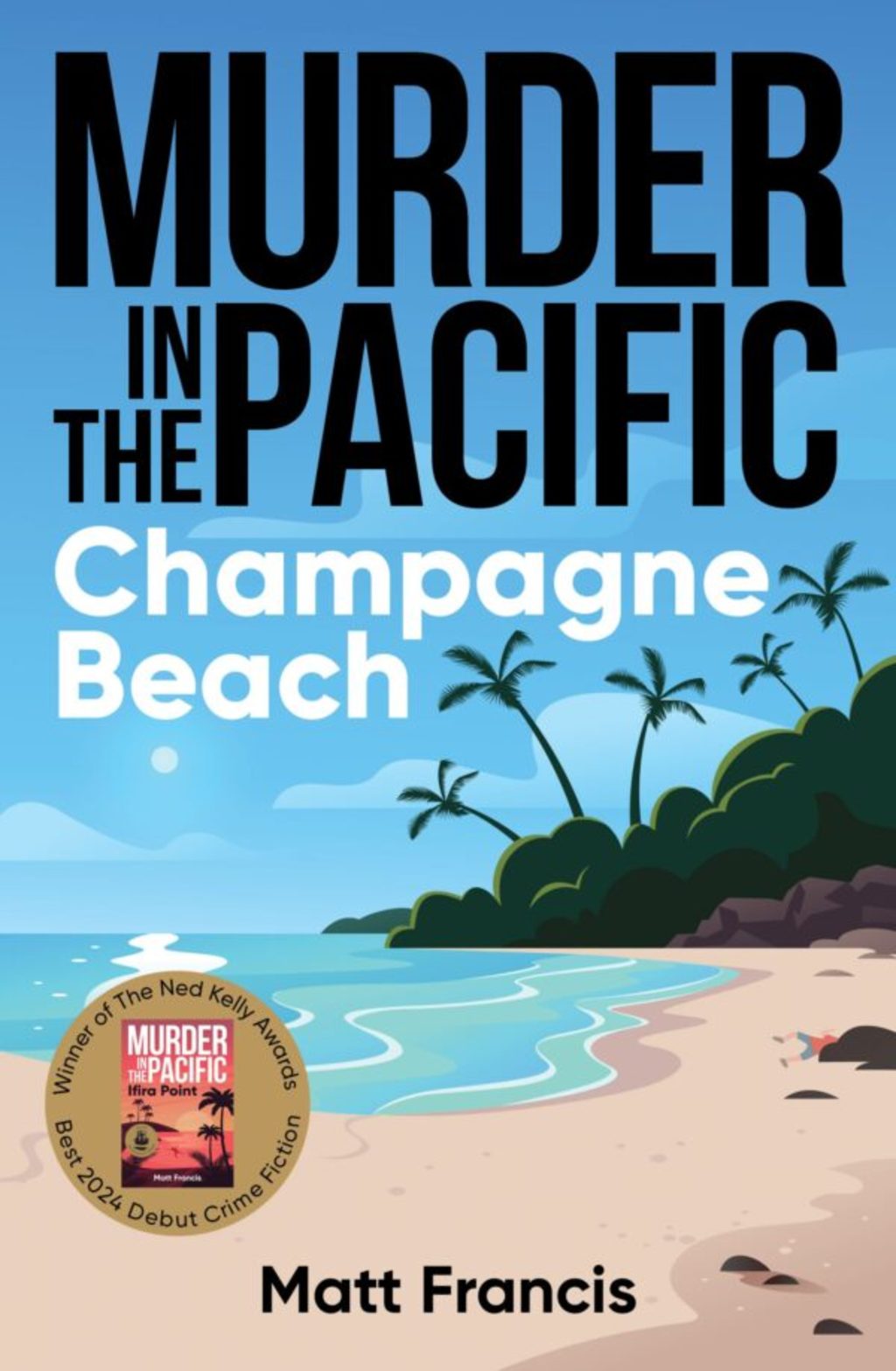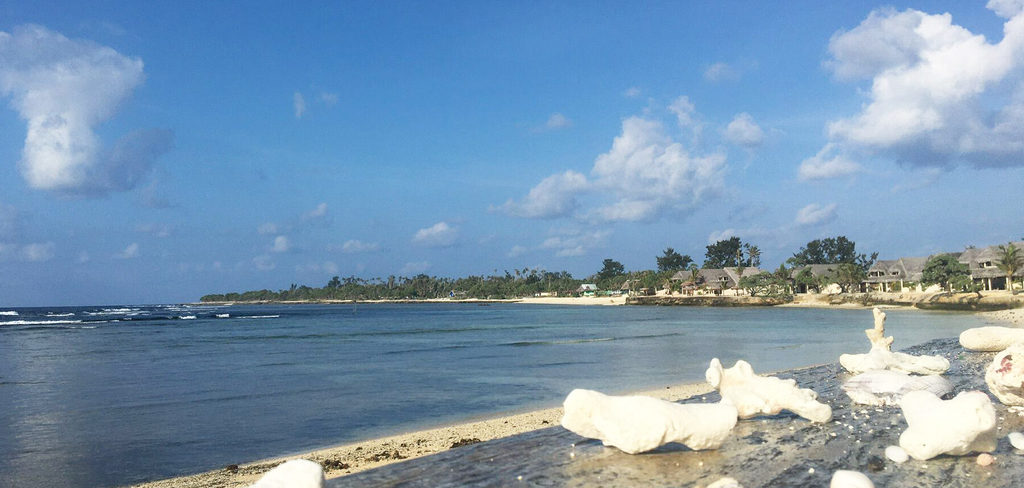Crime fiction is abidingly popular. Five of the top ten books bought in Australia last week were mystery novels. Why is that so? Partly the reason is the obvious fun of working out a puzzle, but fans of the genre and literary critics often advance another reason: such books work as lenses to examine wider truths in a light-touch but revealing way.
Matt Francis’s delightful Murder in the Pacific series of crime capers set in Vanuatu work at both these levels.
Not only do these books contain tricksy mysteries for the reader to resolve but they also deftly shine a light on issues about subjects of keen interest to readers of articles from Devpolicy: development effectiveness, donor politics, how the state works in Melanesia and the long shadow of geopolitical competition.
The books tell the stories of police officer George Long and his sidekick Jayline Oli. George is a ni-Vanuatu of part-Chinese heritage with exemplary English, meaning he often gets the job of dealing with tourists.
Jayline is an up-and-comer in the police force who enjoys imbuing her police reports with literary flair. Side characters include their on-again, off-again romantic partners as well as memorably drawn craggy police officers.
The other main character in the book is the country itself, which the author clearly adores. Francis has set the books in various parts of the islands. The first, Ifira Point, is set in Port Vila, the second, (and my favourite of them all), Mt Yasur, on the island of Tanna and the third, Champagne Beach, on Espiritu Santo, George’s home island.
Plot lines involve characters and institutions that would be familiar to anyone working in aid. A high-handed diplomat features in one book, a shonky NGO in another. In the second book, a murder takes place during the tumult of a donor-funded disaster risk exercise.
In the third book George and Jayline assume the task of investigating the murder of a French planter in Santo, as there are few other police officers on the island. Many are away at a donor-funded training event in Port Vila.
Francis clearly knows his stuff — but who is he? According to his publisher, he is a Melbourne-based Australian university professor who began his career working for an international aid agency, has a love of Vanuatu and the Pacific and has written on the sustainability of aid projects, national identity, religion and development action, children with disability and humanitarian responses. He is not the Matt Francis who once worked as a media manager for AusAID and DFAT (I checked).
Google could not associate any other Matt Francis with the biography just described, so I asked the publisher — yes, it’s a pseudonym.
Whoever the author is, they are clearly well attuned to the ironies baked into international development which intersect with and are made more apparent by great-power competition.
Francis gets into what might be the everyday political economy of Vanuatu government officials where there is an expectation that if China doesn’t fund, Australia or another power will.
At various points Francis, ahem George, opines that Australia has neglected its less combustible Melanesian neighbour for too long and is now paying the price.
He is also versed in the domestic milieu of bureaucratic lives.
Characters are focused on the specifics of how per diems are calculated, the sort of quotidian realities which rarely make their way into a partnership strategy.
I was in Port Vila recently. The centre of Vila felt forlorn and gouged out, many buildings either condemned or torn down because of damage from the December earthquake. The aid industry was rumbling on with its work. The resort hotel I stayed in had just finished hosting a five-day summit appraising a set of international health regulations devised in 2005. On a morning stroll along potholed roads and rumpled pavements, I walked past large billboards which block-quoted prime ministerial remarks thundering about “people with vested interests undermining sovereignty”.
I wandered past the office which had approved a Vanuatu passport for self-described internet celebrity and misogynist influencer Andrew Tate. Vanuatu’s golden passport scheme is the sort of arrangement George and Jayline might investigate in a future adventure.
I bought a newspaper from a street vendor before heading in for coffee at a café that is a favourite of George and Jayline, relocated from its original home because of the quake.
The paper was festooned with pictures from a ceremony the day before where Australia handed over kit to the country’s maritime police unit.
On other pages were photos of the Chinese ambassador strengthening ties with villagers on the island of Ambae, with the French ambassador pictured on other pages also getting out and about.
Vanuatu would be a good place for a novel about the South Pacific great game, I thought as I sipped my chocolate milkshake, a favourite of one of the characters. Many of the people at tables around me could plausibly be side characters in it.
But there is a big difference between dreaming up the idea of a novel and having the dedication, commitment and literary verve to be able to pull it off.
The mysterious Francis has cleverly deployed fiction to illuminate reality.
These books should be read by anyone venturing to the Pacific for either pleasure or with reform intentions dancing in their head.
This article appeared first on Devpolicy Blog (devpolicy.org), from the Development Policy Centre at The Australian National University.
n Gordon Peake is a writer, podcaster and consultant, and a campus visitor at the Development Policy Centre.
His first book was an award-winning memoir of life in Timor-Leste, his second was on the would-be nation of Bougainville.
Murder in the Pacific. Picture: SUPPLIED



